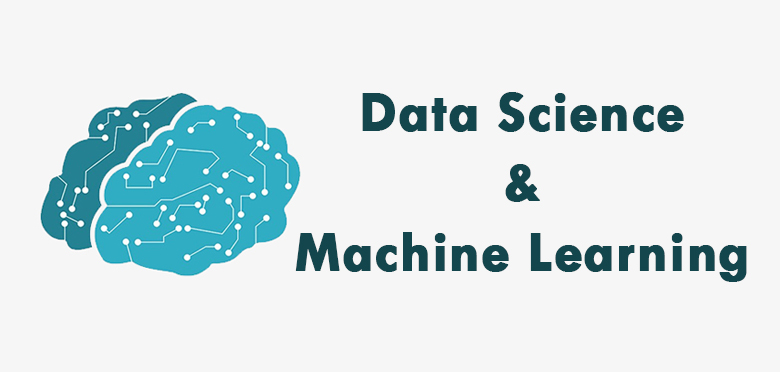Machine Learning and Data Science: Evaluating the Best Career Choice
Explore the key differences between Data Science and Machine Learning, including skills, salaries, and demand, to decide the best career...

The rapid development and growth of artificial intelligence and big data have presented an entire ocean of career opportunities in the field of technology. We can see a huge amount of new and emerging job roles such as AI engineer, prompt engineer, data officers, data ethics officers, and so on.
Among all these, careers in data science and machine learning are becoming quite popular and are known to be among the highest-paid tech jobs across the globe. So, if you are looking to start your career in the data science industry, which path should you go for – machine learning vs data science?
Though both fields are interconnected, there are a lot of distinguishing factors in terms of scope, skill requirements, and career prospects. Let’s dive deeper and explore the differences, similarities, and career potential of these two rapidly growing fields, and help you make an informed decision.
Data Science: What is it?
Data science is a multidisciplinary field that leverages mathematics, statistics, programming, and domain expertise to help businesses extract insight and knowledge from huge amounts of data and assist in informed decision-making.
A Data scientist’s day work involves:
- Data collection and cleaning – collect data from various sources, relevant to their project, in both structured and unstructured formats
- Exploratory data analysis – involves the use of statistical techniques to find trends and patterns in large data sets
- Model building – Data scientists also build effective predictive or descriptive models to help support their organization’s business operations
- Data visualization – data visualization refers to translating complex and difficult insights into easy-to-understand visuals and graphics for non-technical stakeholders and audiences
- Communication and collaboration – often the science projects require efforts from multiple teams and departments, and therefore data scientists need to effectively communicate and collaborate with professionals outside their teams. They also need to communicate with stakeholders and explain to them their findings so that they can make informed data-driven decisions
- Mentoring junior data scientists – Data scientists can also be found mentoring junior data scientists and data science professionals
Data science technology is more inclined towards driving businesses, and it incorporates machine learning; however, it does not solely depend on it.
Understanding Machine Learning
Machine learning is a subfield of artificial intelligence and is more inclined towards building algorithms and systems that can learn from data and improve their performance over time without being explicitly programmed.
The following are the machine learning engineer’s core responsibilities:
- Designing algorithms – they create and optimize machine learning models such as decision trees, neural networks, or ensemble methods
- Model development – it includes building and maintaining machine learning models for real-world applications that can predict or automate
- Scalability – it is the duty of machine learning engineers to ensure their models are capable of handling large datasets as they grow or become complex
- Experimentation – they need to continuously test and fine-tune their algorithms for higher accuracy and performance
Machine learning is a more technical domain, and it requires a strong understanding of mathematics, probability, linear algebra, calculus, and programming. Machine learning engineers should also be familiar with popular frameworks like TensorFlow, PyTorch, and Scikit-learn.
Data Science Versus Machine Learning: Skills Required
Both machine learning and data science careers are highly interrelated, and the skills you will acquire can be used for both of these domains. Some distinguished data science and machine learning skills are highlighted in the table below.
| Data Science | Machine Learning |
| Strong StatisticsData WranglingData VisualizationBusiness AcumenSQL, Python/R, And Dashboarding Tools | Advanced MathematicsComputer Science FundamentalsDeep LearningNLPNeural NetworksCloud-based ML Solutions, And Deployment Tools |
It is highly recommended to enroll in the best data science certifications or machine learning courses to gain the relevant skills and build a strong foundation for a fruitful career ahead.
Career Opportunities: A Brief Overview
Demand for both data science and machine learning professionals is skyrocketing around the globe across all industries, and they are paid highly competitive salaries as compared to other jobs.
The following are some of the popular job roles in both these fields
Data Science Careers: Roles include Data Scientist, Data Analyst, Business Intelligence Analyst, and Data Engineer. Industries such as finance, healthcare, e-commerce, and government rely heavily on data scientists to derive actionable insights.
Machine Learning Careers: Roles include Machine Learning Engineer, AI Engineer, Computer Vision Specialist, and NLP Engineer. These machine learning jobs are especially prominent in sectors like autonomous systems, cybersecurity, robotics, and cutting-edge AI product development.
If we compare the salaries of popular roles in both fields, we can find similar and competitive salaries, such as:
- Data Scientists – $110,000 to $127,000
- Data Engineers – $125,000 to $130,000
- Data Analysts – $80,000 to $84,400
- Machine Learning Engineer – $128,769 and $158,147
- AI Engineer – $103,400 to $175,262
- NLP Engineer – $92,018 to $123,000
Salary source: Glassdoor/Indeed
Which is a Better Career Option?
So now the choice between data science and a machine learning career depends on your interests, career goals, and your academic background. If you enjoy analyzing data, identifying business insights, storytelling through numbers, or applying statistics to solve real-world problems, then you should choose a career in data science. It will provide you with a great balance between technical and business domains.
And if you are passionate about algorithms, automation, artificial intelligence, and building intelligent systems that can think on their own, then machine learning will be a better career choice for you. It is especially suitable for students and professionals who are inclined towards deep technical work and innovation in AI.
Students and professionals must try to earn relevant data science certifications or machine learning certifications to enhance their skills, expertise, and knowledge, and enhance their credibility among potential employers, and improve their chances of getting hired faster.
The final thoughts!
The topic of discussion should not be whether machine learning or data science is a better career option, as both these fields are complementary. While data science provides the foundation for extracting and analyzing data, machine learning enables professionals to push the boundaries of automation and intelligence.
Therefore, choosing the right career path entirely depends upon a candidate’s personal interest and long-term career goals. No matter which career path you choose, build a strong foundation, master the essential skills, and back it with top certifications to increase your value in the industry.



